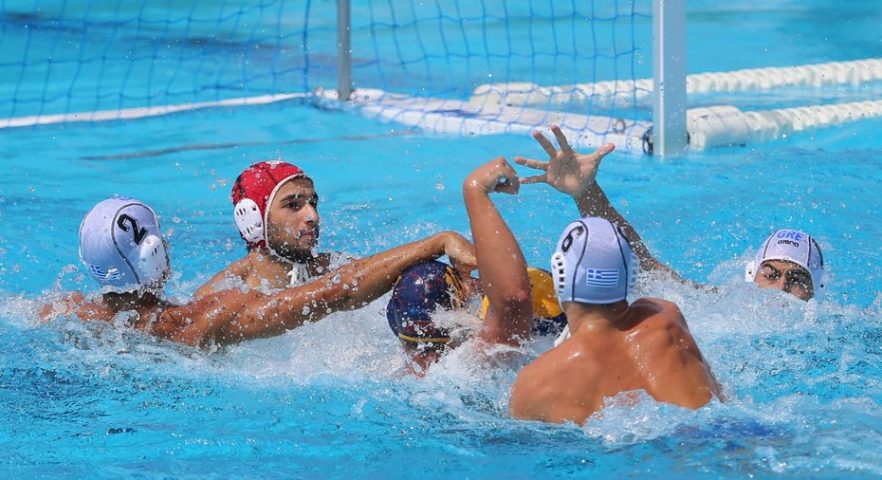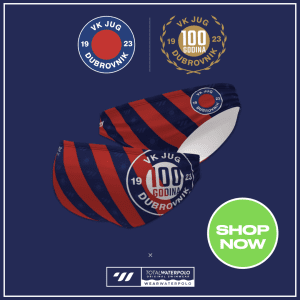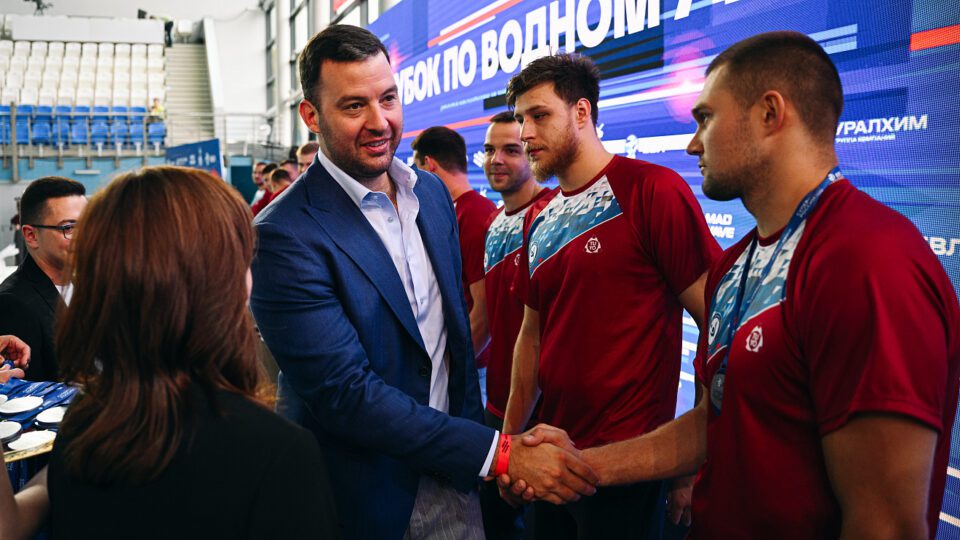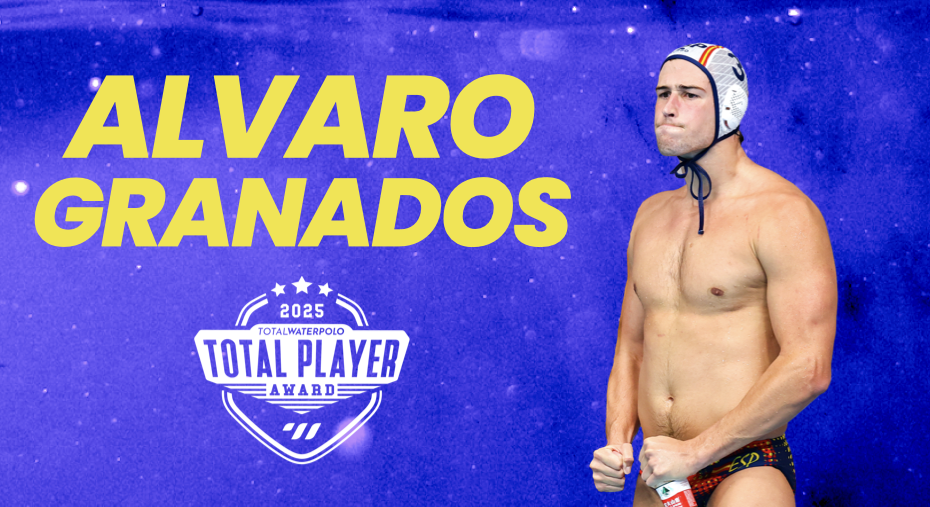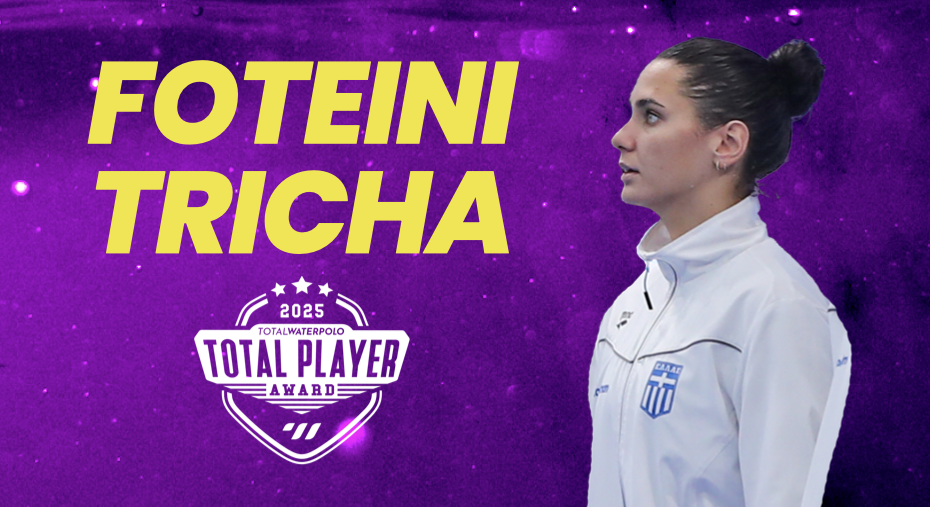You are wrong if you believe that the long water polo summer finished with the European Championships in Split. A new package of excitement is yet to come.
On Sunday, the European U19 Men’s Championships will begin in the capital of Montenegro, Podgorica.
The European Men’s Junior Championships is LEN’s or FINA’s water polo age-group competition with the longest history.
The inauguration tournament was held in Rotterdam in 1970, and the Soviet Union won the gold medal (the list of all medal winners is at the end of the article).
The Podgorica tournament will be the 27th edition of the European Junior Championships.
Almost the same 16 nations that participated in the senior championships in Split will battle for medals in Podgorica. Only two nations that played in Split – Israel and Slovenia – didn’t qualify for the U19 Europeans. They are “replaced” by Turkey and the Czech Republic.
2022 European Men’s Championships, Podgorica (September 18 – 25)
Group A: Spain, Netherlands, Malta, Czech Republic.
Group B: Croatia, Italy, Georgia, Slovakia.
Group C: Greece, Serbia, Romania, Germany.
Group D: Montenegro, Hungary, France, Turkey.
Follow the live scores of all the games on Total Waterpolo Arena.
The list of participating teams is almost the same as in Split. The rules are the same – the group winners will qualify for the quarterfinals, and the 2nd-placed and 3rd-placed teams will try to reach the quarterfinals throughout the playoffs round. Besides, the list of the favorites is almost the same as in the senior European men’s competitions.
Hungary has had a magnificent water polo summer. Young Hungarian water polo players won two titles within several days. A month ago, the U18 team triumphed at the World Championships in Belgrade. A week after that, Hungary clinched the gold medal at the World U16 Championships in Volos. The Hungarians will have a chance to crown the great season with a golden hat-trick in Podgorica. Undoubtedly, they are one of the favorites. One of the leaders of the team is Erik Molnar, who won silver with the senior squad in Split.
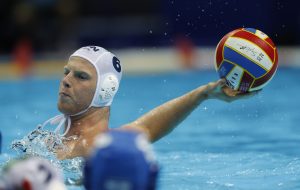
Erik Molnar (HUN) won silver in Split Photo: Total Waterpolo
Serbia won 2nd place at the U18 Championships in Belgrade. But, Serbia will be one of the youngest teams in Podgorica because it comes with almost the same team that won silver in Belgrade. Most of the players were born in 2004 and later. Reinforcement to the U18 squad is Vasilije Martinovic, who won the world U20 title in Prague last year and played at the Split Championships.
Montenegro maybe has the most experienced team. The rejuvenation of the senior national team influences the U19 squad. Even three Montenegro players who won 7th place in Split joined the U19 team after the tournament played in the Spaladium Arena – Marko Mrsic, Jovan Vujovic, and Vasilije Radovic.
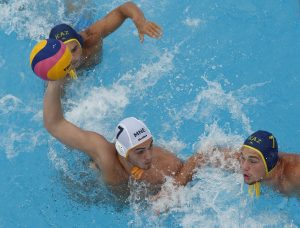
Jovan Vujovic Photo by Laszlo Balogh/Total Waterpolo
Italy is led by Francesco Condemi, who debuted for the senior national team in the World League and played at the European Championships in Split.
Croatia, Spain, and Greece won’t have members of the senior national teams on their rosters, but all three sides are very good. Some of the boys who will represent these three nations have experienced playing in the Champions League.
Greece is the title-holder, but the previous Championship was held in 2018. The tournament scheduled for 2020 was canceled due to the coronavirus pandemic. Therefore, the comparison with the European U19 Championships held four years ago is irrelevant. Alexandros Papanastasiou, Kostas Kakaris, Konstantinos Gkiouvetsis, and many others who won gold in 2018 have been regular members of the Greek senior national team for a long time.
This summer, the Netherlands has proved that it had made progress with all age categories, as well as with the senior team. The Dutch may surprise the favorites. We will see what Germany and France are capable of.
Day 1, schedule
Group A
Group B
Group C
Group D
Road to the medals
Playoff round, September 21
Playoff match 1: 2A – 3C
Playoff match 2: 2C – 3A
Playoff match 3: 2B – 3D
Playoff match 4: 2D – 3B
Quarterfinals, September 22
Quarterfinal 1: 1D – winner PO1
Quarterfinal 2: 1B – winner PO2
Quarterfinal 3: 1C – winner PO3
Quarterfinal 4: 1A – winner PO 4
Semifinals, September 23
Semifinal 1: winners QF 1 and QF 3
Semifinal 2: winners QF2 and QF4
The matches for the final standings between 9th – 16th places will be played on September 24. The final game and the matches for 3rd, 5th, and 7th place are scheduled for September 25.
Rosters
Hungary – Goalkeepers: Benedek Danka (KSI), Kristof Kovacs (Szeged), field players: Vince Vigvari (OSC), Zsombor Ekler ( Honved), Attila Peto (Szolnok), Matyás Meszaros (BVSC), David Tatrai (BVSC), Klar Gergo (Ferencváros), Erik Molnar (Ferencvaros), Norbert Nagy (Miskolc), Zsombor Vismeg (Szolnok), Soma Lakatos (Szeged), Akos Nagy (KSI), Vince Varga (Ferencvaros), Peter Szalai (KSI). Head coach: Balasz Nyeki
Serbia – Goalkepers: Petar Pajkovic (Vojvodina), Radoslav Virijevic (Radnicki). Field players: Mitar Maras (Sabac), Marko Dimitrijevic (Partizan), Rodoljub Gajic (Crvena zvezda), Veljko Krstic (Partizan), Bogdan Gavrilovic (Radnicki), Srdjan Baucalo (Valis), Viktor Urosevic (NBG Vukovi), Vasilije Martinovic (Novi Beograd), Bogdan Brescanski (Vojvodina), Petar Stanic (Sabac), Aleksandar Kovacevic (Valis),Radoslav Virjevic (Radnicki), Andrija Jaukovic (Partizan), Nikola Kojic (Partizan). Head coach: Uros Stevanovic.
Croatia: Mauro Cubranic, Niko Cubranic, Roko Vukovic (all Primorje EB), Toni Busic (Mladost), Noa Burburan (Primorje EB), Duje Djula, Roberto Stojanac, Toni Radan (all Jadran), Nikola Ljepava (Medvescak), Hrvoje Zvono, Ivusa Burdjelez, Patrik Kolak, Vlaho Pavlic, Toni Mozara (all Jug Adriatic osiguranje). Head coach: Mile Smodlaka.
Montenegro: Ilija Radovic, Dragoljub Cetkovic, Jovan Vujovic, Nedjo Bastrica, Vasilije Radovic, Damjan Vujicic, Petar Vujosevic, Marko Mrsic, Matija Sladovic, David Stevovic, Mladjan Gopcevic, Lazar Vukicevic, Marko Boskovic, Milan Nikaljevic, Vladan Vukicevic. Head coach: Milan Cirovic.
Greece: Vangelis Pouros, Yannis Karakouros, Yannis Tottis, Dimitris – Prodromos Bouzalas, Nikos Gillas, Spyros Lykoudis, Nektarios Iliopoulos, Andreas Almyras, Christos Bitsakos, Nikos Kastrinakis, Semir Spahits, Kostas Kandanoleon, Tasos Myrilos, Andreas Bitsakos, Apostolos Georgaras. Head coach: Ilias Machiras.
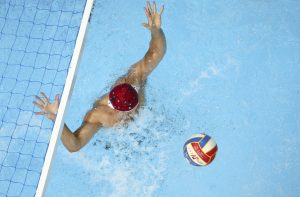
Photo: Total Waterpolo
Spain: Alejandro Alegre, Biel Gomila (both Catalunya), Robert Lopez, Abel Ramon, Marc Valls (all Barcelona), Hugo Castro, Ahmad Perez, Joan Villamayor (all UE Horta), Josep Bonet, Gerard Gil (both Sabadell), Ignasi Bargallo (Sant Andreu), Jan Perez (Mediterrani), Joe Robert Bruce (Barceloneta), Abel Romero (Real Canoe). Head coach: Chus Martin.
Italy: Lorenzo Filippo Garibaldi, Francesco Condemi (both Ortigia), Roberto Spinelli, Ernesto Serino, Agostino Maria Somma (all Posillipo), Matteo Maizzani, Pietro Faraglia (both Roma Nuoto), Marco Stocco, Alessandro Balzarini (both Brescia), Alessandro Gullotta (Catania), Niccolo Gambacciani (Iren Quinto), Tommaso Scollo (Waterpolo Milano), Mattia Rocchino (Acquachiara), Matteo Bragantini (Savona), Luca Provenziani (Roma Vis Nova). Head coach: Roberto Brancaccio.
Netherlands: Sander Berkenbosch (Polar Bears), Lars ten Broek (Polar Bears), Thijmen Karel (ZPC Het Ravijn), Tim Ketelaars (ZV De Zaan), Stan Meijn (ZV De Zaan), Max Reijchard (ZVL 1886), Tijs Schouwerwou (GZC Donk), Jimmy Sjardijn (GZC Donk), Terrence Smit (CN Sant Feliu, Spain), Marnick Snel (Polar Bears), Pepijn Stevens (ZPC Amersfoort), David Voorvelt (ZVL 1886), Mart van der Weijden (GZC Donk) and Jens Wijgers (Polar Bears). Head coach: Johan Aantjes
Germany: Finn Grosse, Finn Rotermund, Luk Jaschke, Philip Portisch, Max Spittank (all White Sharks Hannover), Florian Burger, Till Hofmann, Finn Taubert (all OSC Potsdam), Robin Rehm, Emmanouil Petikis (both SSV Esslingen), Aleks Sekulic, Mark Dyck (both Spandau 04), Phil Dorrenhaus (SV Krefeld 72), Andrei Covaci (ASC Duisburg), Cesare Karl Mancini (SV Bayer Uerdingen 08). Head coach: Nebojsa Novoselac.
Medal winners
1970 (Rotterdam): 1. USSR, 2. Spain, 3. West Germany
1971 (Barcelona): 1. Hungary, 2. Spain, 3. USSR
1973 (Duisburg): 1. Hungary, 2. USSR, 3. Spain
1975 (Jonkoping): 1. USSR, 2. Spain, 3. Hungary
1976 (Valetta): 1. Italy, 2. Hungary, 3. Spain
1978 (Budapest): 1. USSR, 2. Hungary, 3. West Germany
1980 (Sittard): 1. Spain, 2. USSR, 3. Hungary
1982 (Varna): 1. Italy, 2. Romania, 3. USSR
1984 (Santa Cruz de Tenerife): 1. Italy, 2. Yugoslavia, 3. Spain
1986 (West Berlin): 1. West Germany, 2. USSR, 3. Hungary
1988 (Veenendaal): 1. Yugoslavia, 2. USSR, 3. Hungary
1990 (Varna): 1. Yugoslavia, 2. USSR, 3. Hungary
1992 (Sopron): 1. Hungary, 2. Spain, 3. Greece
1994 (Bratislava): 1. Hungary, 2. Croatia, 3. Spain
1996 (Istanbul): 1. FR Yugoslavia, 2. Hungary, 3. Croatia
1998 (Bratislava): 1. FR Yugoslavia, 2. Italy, 3. Croatia
2000 (Kamen/Lunen): 1. FR Yugoslavia, 2. Greece, 3. Italy
2002 (Bari): 1. FR Yugoslavia, 2. Hungary, 3. Italy
2004 (Valetta) 1. Serbia and Montenegro, 2. Croatia, 3. Hungary
2006 (Oradea): 1. Serbia, 2. Hungary, 3. Spain
2008 (Istanbul): 1. Montenegro, 2. Spain, 3. Serbia
2010 (Stuttgart): 1. Italy, 2. Greece, 3. Croatia
2012 (Canet-en-Roussilion): 1. Italy, 2. Serbia, 3. Croatia
2014 (Tbilisi): 1. Serbia, 2. Hungary, 3. Croatia
2016 (Alphen aan den Rijn): 1. Serbia, 2. Italy, 3. Spain
2018 (Minsk): 1. Greece, 2. Montenegro, 3. Spain



